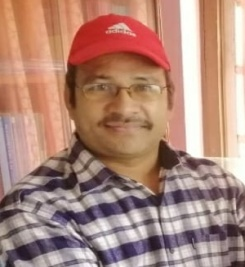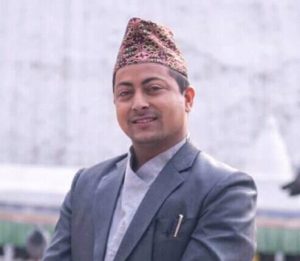Dear valued readers,
Greetings!
We are pleased to release the first quarterly issue (January-March) of ELT Choutari 2022 as the 13th anniversary issue of the blog magazine. We believe that our valued readers get benefitted through these reflective blog pieces. ELT Choutari tries to bring resourceful articles/blogs and generate discourse on education, English teaching learning, research reading and writing practices useful for novice writers, English language teachers, students, teacher educators and academicians. Choutari has been offering the articles, blogs, reviews and interviews based on the experiences, reflections, scholarly ideas, teaching-learning practices and critical outlook to our readers and will continue doing it.
This time we have released the general issue of the magazine thinking that we could cover a wide range of reflective articles from diverse fields of ELT practices in Nepal. There are five articles in this issue:
Dr. Hari Chandra Kamali in his article ‘Postmethod Pedagogy, Deconstruction and ELT Practices: Some Reflections from the Pedagogy of the Gita’ connects the pedagogy of the Gita to ELT practices as deconstruction of postmethod pedagogy. He argues that ELT practices should be like deconstructive pedagogy and ELT practitioners play the roles of a deconstructionist teacher like Lord Krishna in the pedagogy of the Gita.
Likewise, Ashok Raj Khati in his article ‘Author Identity in Academic Writing’ reflects on his academic writing experiences in higher education stressing on author identity as a social construct. He discusses Ivanic’s (1998) Framework of Author Identity in order to support his arguments.
Similarly, Jeevan Karki in his article ‘Strategic Reading to Overcome Reading Struggles in Higher Level: A Memoir’ reflects on his reading strategies that he adopted while studying at university in Nepal comparing those strategies with his recent strategies he has been adopting at a new university in US. His reading practices can be useful for university level students, researchers, teachers and other professionals.
In the same way, Binod Raj Bhatta in his article ‘Is the Process Approach to Teaching Writing Applicable at All Levels?’ argues that the process-based approach to teaching writing can be quite applicable at all levels in the context of Nepal. He concludes his arguments about the applicability of this approach by quoting the Chinese proverb ”I hear I forget, I see I remember, I do I understand/know” and emphasizes the possibility and practicality and the guiding principles of teaching writing skills in Nepal.
Finally, Dipak Tamang in his article ‘An Anecdote of an English Language Teacher’ reflects on his own experiences of teaching English to Tamang students. He argues that his students understood better when he taught using the students’ mother tongue, here Tamang language. As he argues, the teachers need to support their teaching using teaching learning materials along with the technology for the effective use of the mother tongue as the medium of instruction.
For ease of access, below is the list of hyperlinked articles:
- Postmethod Pedagogy, Deconstruction and ELT Practices: Some Reflections from the Pedagogy of the Gita by Hari Chandra Kamali
- Author Identity in Academic Writing by Ashok Raj Khati
- Strategic Reading to Overcome Reading Struggles in Higher Level: A Memoir by Jeevan Karki
- Is the Process Approach to Teaching Writing Applicable at All Levels? by Binod Raj Bhatta
- An Anecdote of an English Language Teacher by Dipak Tamang
Finally, I would like to thank our co-editor Ganesh Bastola for his support throughout the process. We both are thankful to all our reviewers including our editorial and review team members Ashok Raj Khati, Jeevan Karki, Sagar Poudel, Karuna Nepal, Babita Chapagain, Nani Babu Ghimire, Ekraj Koirala, Jnanu Raj Paudel and Rajendra Joshi. Most importantly, we are indebted to all the contributors of this issue.
If you enjoy reading these articles, please feel free to share in your circle, and of course, drop your comments in the boxes below. Likewise, please write and send us your teaching-learning experiences for which we will be happy to provide a space at Choutari. Our email is 2elt.choutari@gmail.com
Happy Reading!

